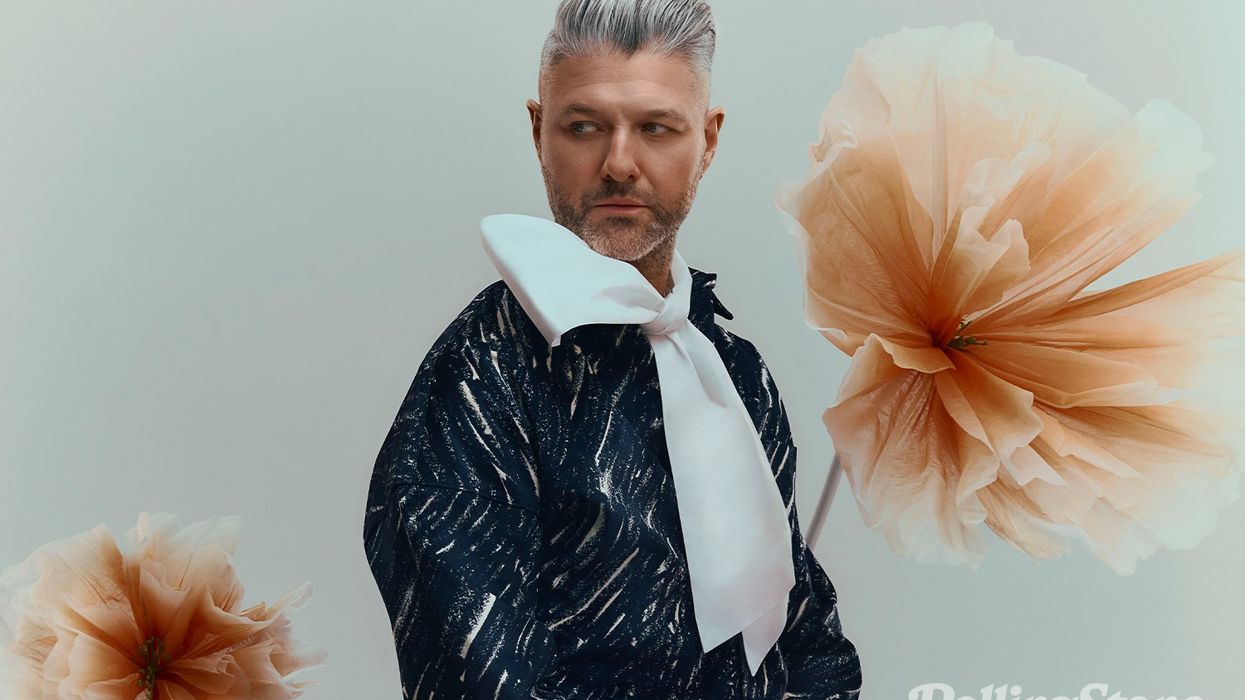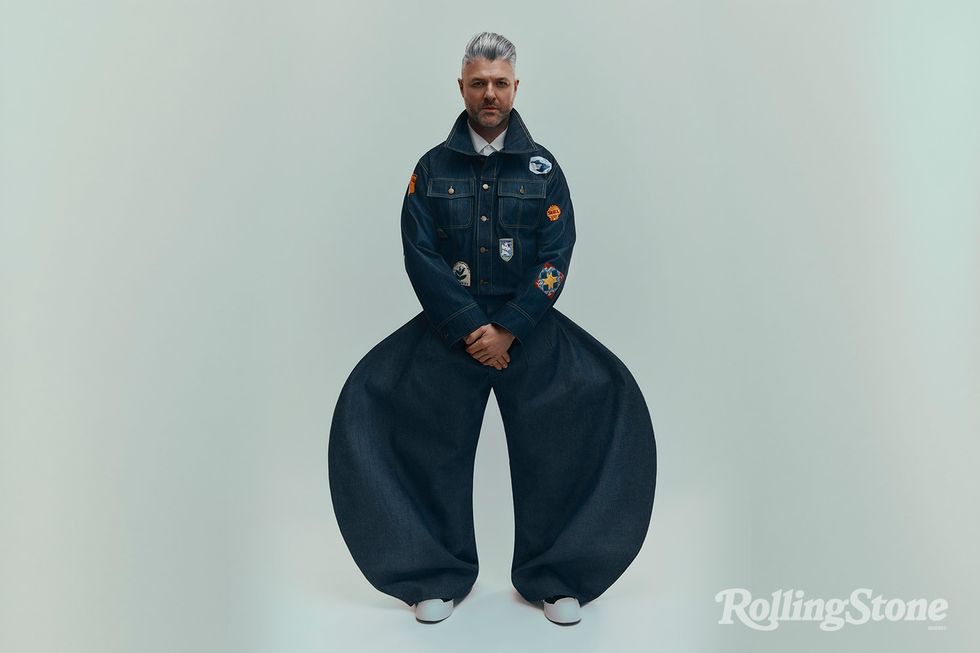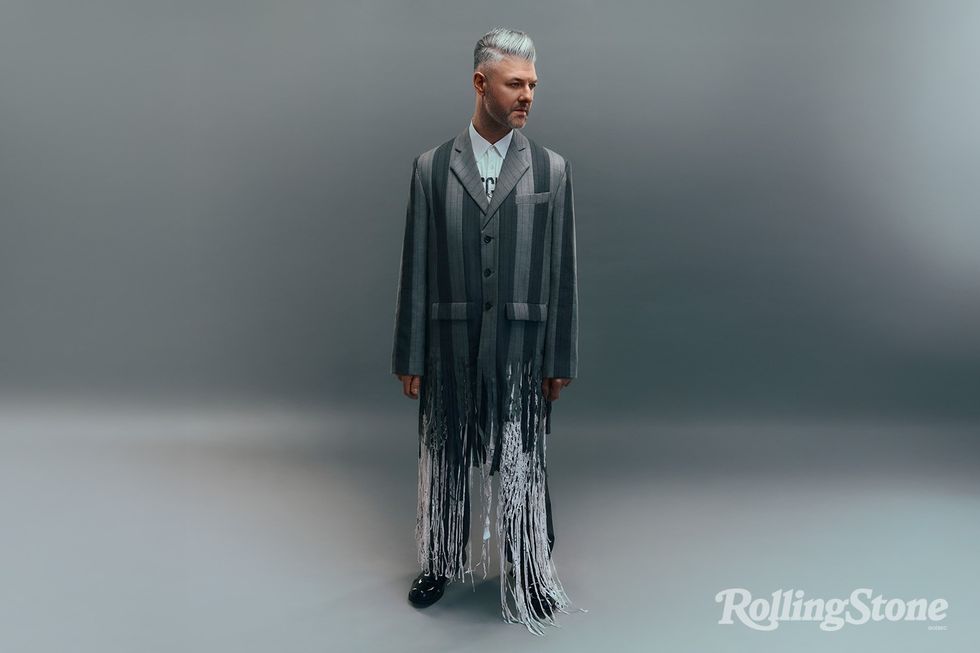Two years ago, Sarah Tudzin found herself alone in the Joshua Tree desert. Armed with some recording gear, her pitbull mix, Maeby, and a turned-off cell phone, she holed up in an Airbnb in an attempt to get real about making the fourth Illuminati Hotties record. But first, she had to finally face the rollercoaster of emotions that loomed each time she wrote a new song.
“I had nowhere to run anymore,” the engineer, producer, and singer-songwriter tells Rolling Stone over Zoom. The stint in Joshua Tree “was partially removing myself from the real world and partially trapping myself in a little place that I couldn’t get out of,” she says. Before she decamped to the desert, Tudzin had built a routine at home: wake up, set a timer, and knock out a freewheeling idea of a song on her guitar. While the habit of channeling her creative juices first thing in the morning yielded the bones of a few good Hotties tracks, Tudzin wasn’t yet tapping into the magic of some of her most poignant work. “I would sit down every morning and try to crank out songs and push away all these things,” she says. “I was wrestling this album to the ground.”
In the stillness of the desert, though, Tudzin turned inward. Over three and a half days, all the grief, excitement, frustration, and love she was compartmentalizing crystallized into seven songs for the strongest, most honest Illuminati Hotties LP yet, aptly named Power. “Suddenly, the focal point of the album was becoming much clearer,” Tudzin, 32, says. “I started to get to the core of what I thought I wasn’t writing about but I was sort of all along.”
Since 2018, Tudzin has kept busy as an increasingly in-demand producer and engineer in L.A., and a performer in her own right under the cheeky Illuminati Hotties stage name. But in 2021, her career kicked into high gear. For starters, she released her third Hotties album, the critically-acclaimed Let Me Do One More, filled with evocative, relentlessly catchy pop-rock songs. The project marked Tudzin’s first on her own Hopeless Records imprint, Snack Shack Tracks, after cleverly escaping her contract with the drama-embroiled indie label Tiny Engines in 2020.
In between tour dates for Let Me Do One More, Tudzin found time to produce and/or engineer some of the sharpest indie rock records of the past few years, including Weyes Blood’s And in the Darkness Hearts Aglow, Speedy Ortiz’s Rabbit Rabbit, and the culture-shifting full-length debut from ascendant supergroup boygenius. Earlier this year, the latter scored Tudzin her first Grammy Award (she was recognized for her contributions when The Record took home Best Alternative Album), raising her profile even higher.
Tudzin sees it as no coincidence that her career was peaking at a time when, as she puts it, “My personal life got very deep.” For much of that time, she was still working through the loss of her mom to metastatic breast cancer in 2020, which came on the heels of her father’s recovery from a long illness. “My coping mechanism was to ignore that as hard as I could and put my head to the grindstone and work obsessively as a means of distraction.”
That’s also when Tudzin experienced “some of the happiest moments of [her] life,” as she fell deeply in love with musician Maddie Ross, who she married in the fall of 2023. “When real love happened, it felt so huge,” Tudzin says, a soft smile unfurling. The bittersweet dichotomy of her life was potent: “In general, with experiencing an extreme and ruthless loss, when happy stuff happens, it feels like the water’s a little murky… like there’s something missing or there’s a joke that’s being played on you, partially because you’re in awe of how deep the well of joy runs, but also because you are experiencing life moving forward while also holding a space for a big piece of your life that’s going to remain on pause.”
Those opposing ideas became the crux of Power, which packs what Tudzin describes as “immense duality” into sleek, pop-tinged melodies that embody life at its messiest and realest. Songs like the album’s title track, which originated in her Joshua Tree solo sessions, are steeped in loss, as Tudzin sings reverently for her mother. On “Rot” and “Everything Changes,” Tudzin wraps her grief in soft-plucked guitars as she struggles to come out from under the loss of a parent.
Another theme from the album slips out in the breezy love song “Sleeping In,” when Tudzin sings “love is coexistence” in what she calls “a lightning-strike bridge.” The line felt so effortlessly romantic that she asked herself, “Did I accidentally just say something the Beatles already said?” Meanwhile, “Falling in Love with Somebody Better” bottles new love and persistent grief into one song. The rosy sentiment of the title drives the melody, only to be pushed up against a crushing guitar riff as Tudzin sings “I wish that you had met her” in a gut-punch moment.

Singles like “Can’t Be Still” and “Didn’t” speak directly to the difficulty of making the album and the push and pull of Tudzin’s hectic schedule. Nothing is as unflinchingly honest about her workhorse coping mechanisms as “What’s the Fuzz.” A bombastic track that recalls the energy of Let Me Do One More is instantly elevated by the nihilistic statement “Living is easier when you’re stupid/ Might as well just keep it moving.” One thing that unites the new album is its intensity, no matter where it goes.
As she sits on the other side of the grueling process of writing Power, Tudzin can’t help but feel excited for what’s to come. “This feels like a big new era for Hotties,” she says, adding, “It feels like it’s unlocking a side of this project that I hope will resonate with more people.” It’s clear the producer is taking “tenderpunk” to higher levels. To Tudzin, the self-coined term refers to her efforts “to make [music] a little softer and a little sweeter and have a little more emotional maturity than punk is at its heart.”
While past Illuminati Hotties records have gracefully balanced disparate sounds and concepts, Power finds Tudzin at the top of her songwriting game with brutally raw lyrics that touch on every chapter of her life. It’s no wonder it took the bulk of three years to expel it all. “I couldn’t have possibly written a grief album because I just don’t think I was able to face that truth,” she admits. “At the same time, I’ll be writing that album for the rest of my life now.”







 Coat (polyester and wool), shirt (silk), Dries Van Noten, SSENSE.com / Flower (silk), M&S Schmalberg
Coat (polyester and wool), shirt (silk), Dries Van Noten, SSENSE.com / Flower (silk), M&S Schmalberg
 Blouson (denim and hand embroidered patches), WJ Crosson / Shit (polyester), Homme plissé Issey Miyake, Holt Renfrew/Pants from personal collection/ Shoes(canvas), Marni
Blouson (denim and hand embroidered patches), WJ Crosson / Shit (polyester), Homme plissé Issey Miyake, Holt Renfrew/Pants from personal collection/ Shoes(canvas), Marni Jacket and pants (virgin wool), shirt (acrylic coated cotton), Moschino / Shoes from Pierre Lapointe's personal collection
Jacket and pants (virgin wool), shirt (acrylic coated cotton), Moschino / Shoes from Pierre Lapointe's personal collection








